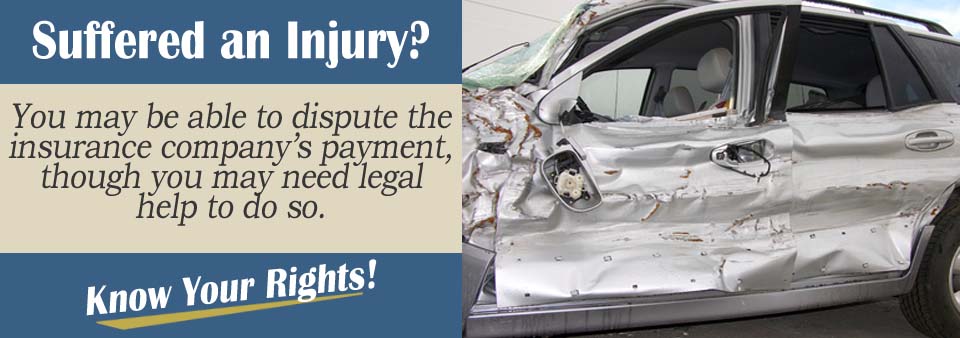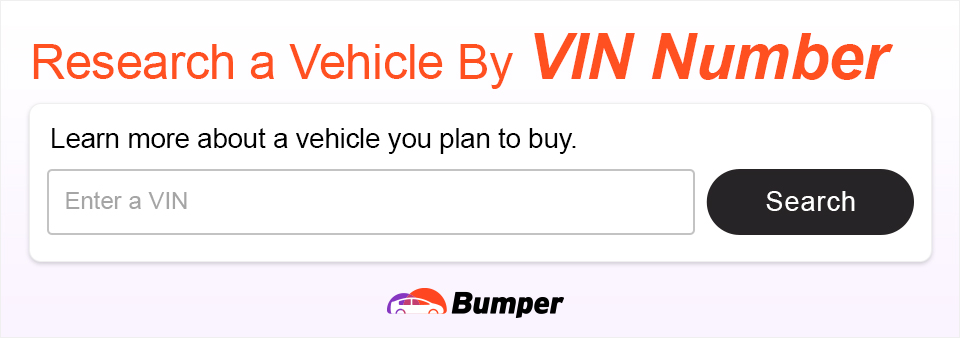If you have been in a car accident and you have been told your car was totaled, you might not know what that means and what to expect. How much do you receive in damages for a totaled car? If you dispute the amount they quote you, can you ask for more?
All of these questions are important when working with insurance companies following an accident resulting in a “totaled” vehicle.
These questions can easily be answered by an attorney, so we asked one! Here's what attorney, Alaina Sullivan, had to say:
What Does “Totaled” Mean?
When an insurance company determines that your car has been totaled, that means that the car is a total loss following the accident. Essentially, your car is not repairable or the repairs would cost more than what the car is worth. The insurance companies will generally consider a car totaled when the damage exceeds around 65% of the market value.
How Much Am I Owed If My Car Is Totaled?
If your car has been totaled, the insurer owes you the retail market value of your car, which is the actual cash value. Keep in mind this is not the retail market value of your car now that it is totaled. This value is what it would have been valued prior to the accident.
However, you may not agree with how the insurer values your car.
What Do You Do with a Totaled Car?
You have two options. You can go for the cost of repairs to keep your car, or you can call it a loss and walk away with the retail value of your car so that you can purchase another.
If you do choose to keep your vehicle and want to make sure you receive the proper amount to cover the cost of repairs, give the insurance company maintenance records and records of improvements to make sure your car is properly valued.
The cash value of the car is not the only thing considered when coming to an amount. The insurer must also figure in:
- Applicable taxes
- License fees
- Other fees that are required to transfer ownership of the car
When You Disagree with Your Insurer
If you disagree with the insurer’s valuation of your car, you have the right to seek an appraisal of your own. Most insurance policies have an appraisal provision, allowing both you and the insurance company to hire appraisers.
If the value your appraiser comes up with is significantly higher than what the insurance company is quoting you, you can seek the higher amount. You may not end up being awarded that amount, but you certainly can ask for it.
What To Do With The Insurance Company's Check
If you receive an insurance check for the cost of your car, do not deposit it if you believe the amount is too low. Once you do deposit that check, you waive your legal right to ask for any additional compensation for damages.
If you have any hesitation whatsoever, talk to an attorney first before waiving the right to seek more compensation.
The Art of Negotiation
You do not have to accept the initial offer given to you by the insurance company. Keep in mind that they want to spend as little money as possible so they will likely low ball your initial offer. Be prepared to push back and contest the offer.
If you owe more your car than the value of the car, you should talk with your lender about substitution of collateral. You can attempt to use insurance money to buy a replacement vehicle and have the vehicle be used as security for a future loan.
If you have installed extras to your car that add to its value, such as new stereos or top-of-the-line wheels and tires, give proof of payment of these items as well as appraised value to your insurer to negotiate a potentially higher amount than the normal retail value for your car’s make and model.
What if I took a loan out on my car?
It is likely that you will have taken a loan out on your car. According to a report by the Federal Reserve Bank of New York, 107 million Americans had auto loan debt in 2017. A loan is an additional factor that will contribute to the amount of money that your receive from the insurance company. Before you receive any money, the money will first go toward paying off your loan. The following example shows how a loan will affect your payments.
You purchase your car for $20,000. To help make that purchase, you take out a $10,000 loan. At the time of the accident your car is worth $12,000 and you owe $6,000 on your loan. The insurance company will pay you $12,000 minus your $1,000 deductible. The first $6,000 of your payment will go toward paying off your loan, which will leave you with a $5,000 check.
If you decide that you would like to keep your car and repair it, note that the insurance company will likely take out of your payment the value that they would get from scrapping your car. It is also important to understand how driving a salvaged car will be different than purchasing a replacement vehicle.
Buying Back a Totaled Car
There may be reasons why you might consider buying back a totaled car from the insurance company that has claimed salvage rights over it. It is not a decision to be taken lightly as it may not be worth it if the car cannot be insured again or is simply not safe.
It is best to get the opinion of a car repair yard or mechanic before you make a decision. You will also need to know what your state laws are on buying back totaled cars after an insurance claim. Some states allow it while others prohibit it in all situations or only when there are certain conditions.
Generally, if your car is so severely damaged that it is considered a wreck, or totaled, then the insurer responsible for paying compensation should pay you the equivalent price that the car is valued at before the crash. Theoretically, they are then allowed to keep the car for salvage.
They may be able to obtain some of the money they have paid you in compensation from a wrecking yard. In some cases, especially if the car is old, the insurance company may allow you to have the car back even if it has been considered as a totaled car and you have already been paid compensation.
Other Damages That Can be Claimed
You can only obtain compensation for a totaled car that is based on the value of the car before it was damaged. However, the fact that it was totaled means that if you were in it at the time of the crash, you would have probably been injured yourself.
You must see a doctor if you were involved in a car crash, even if you think your injuries were minor. The insurer of the other driver, assuming that he or she was at fault, will not pay compensation if you have no evidence of injuries or the cost of them. You may be able to include the following damages in your claim:
- the cost of replacement or repair of any other property that was damaged in the car at the time of the crash;
- the cost of hiring another vehicle while your car was taken care of by the salvage company;
- the cost of medical treatment, including future medical treatment if necessary;
- lost earnings, wages or other income due to a failure to attend normal work;
- pain and suffering compensation or other non-economic amounts;
- in some cases, where it can be proven that significant negligence was involved, punitive damages.
As with claiming compensation for your totaled car, you will need evidence to show how your compensation claim was calculated. This could be in the form of doctor’s reports, copies of all tests and scans that you have had, receipts for damaged property other than your car, receipts and invoices from medical facilities that provided you with treatment services for your injuries.
Contact an Attorney Today
A licensed personal injury attorney will be able to evaluate your case and determine if you have a claim against the other party’s insurance company. For the best chance of receiving the compensation you need to pay for medical bills, auto body bills, and pain and suffering, you should speak with a personal injury attorney in your area today.

